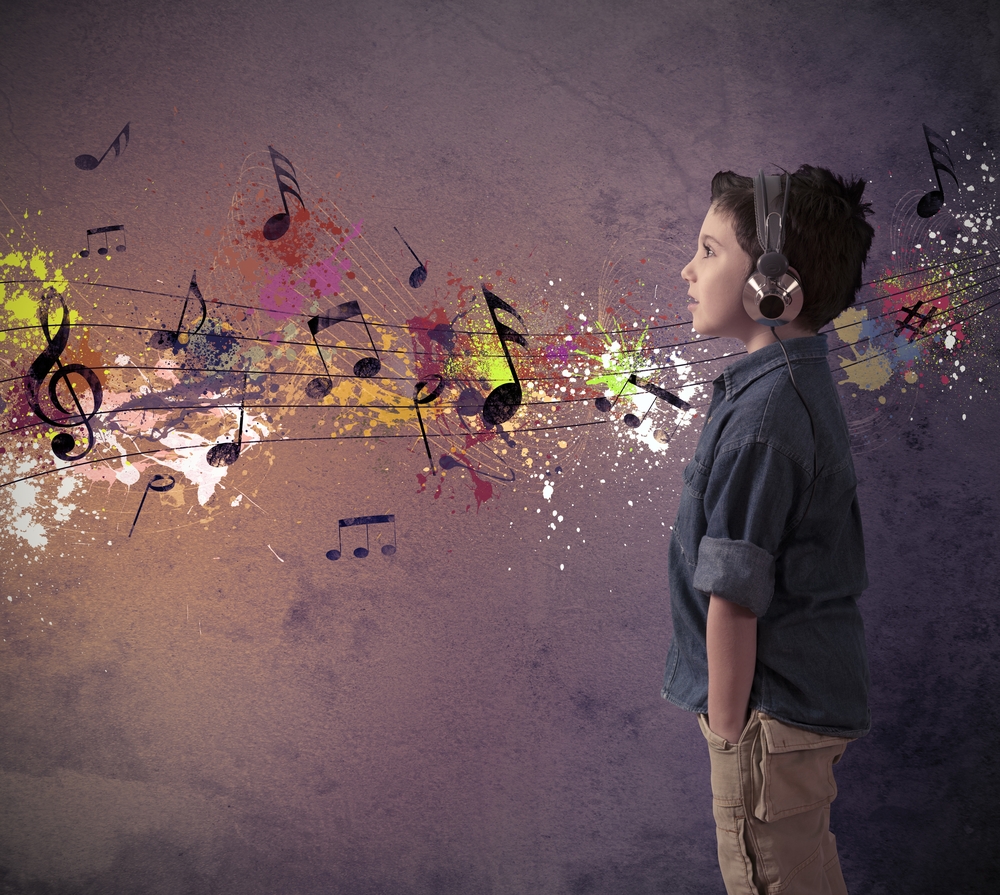Music therapy is a non-traditional approach to managing psychological disorders and stress that has become increasingly popular.
According to a recent study by Jong-In Park and colleagues, music therapy has had a more positive impact on young people with ADHD than standard care. The researchers from Soonchunhyang University in South Korea write:
“The application of music therapy as an alternative treatment for ADHD children and adolescents showed positive neurophysiological and psychological effects. Therefore, this study would like to propose a new alternative to medicine for preventing and treating depression through various uses of music therapy.”
 The authors of this study point out that adolescents tend to have more “flexible” minds than adults and tend to be more receptive to alternative therapies. However, many children and adolescents are only—or primarily—treated with drugs. Pharmaceutical drugs may suppress symptoms or unwanted behaviors in children with ADHD without addressing more holistic causes of the symptoms.
The authors of this study point out that adolescents tend to have more “flexible” minds than adults and tend to be more receptive to alternative therapies. However, many children and adolescents are only—or primarily—treated with drugs. Pharmaceutical drugs may suppress symptoms or unwanted behaviors in children with ADHD without addressing more holistic causes of the symptoms.
Past studies show the potential of music therapy as one such helpful alternative to prescribing drugs. However, the researchers emphasize the need for long-term, sustainable, and safe treatments for adolescents and children. Hence, their experimental design.
The researchers posit that depression in children and adolescents is often caused by high-stress levels, which can be controlled by the hormone cortisol. Children and adolescents with ADHD experience high-stress levels, making them more susceptible to depression later in life. The presence of depression as a coexisting disorder with ADHD is considered a more difficult situation than ADHD alone.
In this study, 36 participants were divided into two groups: an experimental group and a control group. The control group received standard care, while the experimental group received standard care and music therapy. The music therapy consisted of “active music therapy” involving improvisation and “receptive music therapy” focusing on listening to music. Serotonin (5-HT) secretion, cortisol presence, blood pressure, heart rate, and surveys (Children’s Depression Inventory, CDI, and Daily Hassles Questionnaire, DHQ) were used to measure changes in depression before and after treatment.
The researchers hypothesized that serotonin secretion would increase and cortisol expression would decrease in the experimental group. They expected to see a significant difference in these changes compared to the control group.
The results supported their hypothesis. The group receiving music therapy alongside standard treatment showed significant increases in serotonin secretion and significant decreases in heart rate, blood pressure, and cortisol expression. The self-report survey results also showed more positive changes for the experimental group. Meanwhile, the control group saw almost no change whatsoever. Hormone and neurotransmitter presence did not significantly change after standard treatment, and the CDI and DHQ showed no change.
The researchers highlight the potential of music therapy as a tool for children and adolescents with ADHD, especially during the COVID-19 pandemic. Music therapy is a convenient and accessible practice that adolescents can integrate into their daily lives. Music therapy aims to turn music into a coping tool for daily life.
This study’s music therapy configuration allowed for convenient accessibility during continuous treatment by transmitting sound source files for listening to auditory music at home and observing heart rates using home blood pressure and heart rate monitoring machines. This approach minimizes the need for space and cost for treatment and can be applied more easily than other non-pharmacological treatments.
The research spanned three months and involved providing the experimental group with 24 music therapy sessions. The findings were highly consistent among the treatment groups and fully supported the hypotheses. However, to further enhance the study’s validity, the authors recommended conducting a follow-up investigation utilizing physiological metrics instead of emotional metrics such as depression and stress.
Other studies have already shown similar results using other or similar metrics in children that do not have ADHD, including improved self-esteem. Music therapy was also shown to improve depression symptoms in people with dementia in a 2017 study.
Music therapy presents a promising opportunity for managing ADHD in children and adolescents. As a non-pharmacological intervention, it offers a more accessible and sustainable option than drug prescriptions. Moreover, it can potentially be a valuable tool for enhancing daily functioning. Hence, music therapy represents a promising alternative with substantial benefits for effectively managing ADHD.
****
Park, J.-I., Lee, I.-H., Lee, S.-J., Kwon, R.-W., Choo, E.-A., Nam, H.-W., & Lee, J.-B. (2023). Effects of music therapy as an alternative treatment on depression in children and adolescents with ADHD by activating serotonin and improving stress coping ability. BMC Complementary Medicine and Therapies, 23(1), 73. https://doi.org/10.1186/s12906-022-03832-6 (Link)














